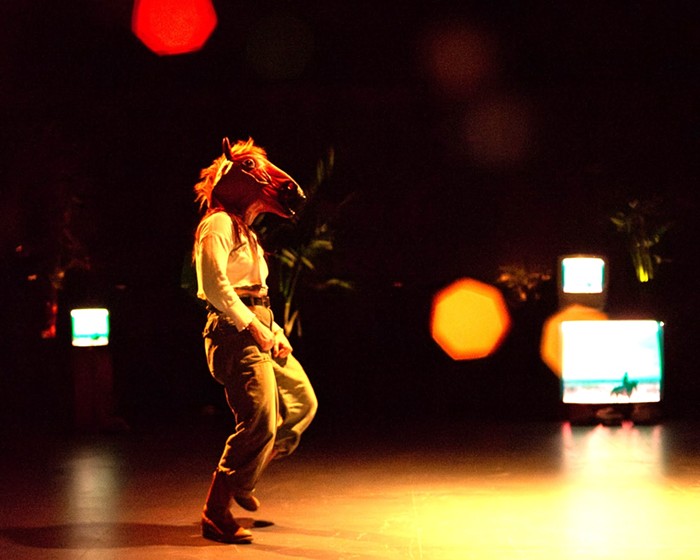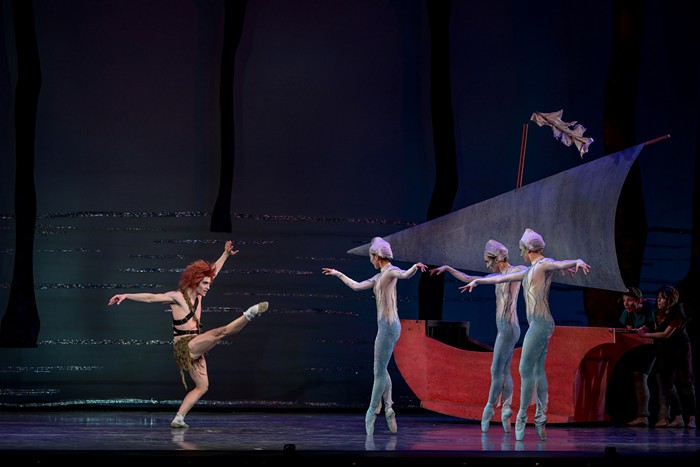The Northwest Classical Theatre Company (NWCTC)'s Grant Turner introduced this Sunday program as a "dour afternoon" of one acts, before concluding that the shows are each about the strength of the human spirit. Fair warning, but the attempt to illuminate the bright side of this grim little lineup seems more like wishful thinking than text-based prognostication: The three pieces in the program—Samuel Beckett's Krapp's Last Tape, and Before Breakfast and The Sniper from Eugene O'Neill—are dour indeed.
The excellent staging of Krapp's Last Tape is the highlight of the afternoon. Daniel Shaw is compelling and a little heartbreaking as the hapless Krapp, who each year on his birthday records a tape summarizing the events of the preceding year. Disappointment, self-loathing, alcoholism, and regret: Beckett knew a little something about all of them, and, through Krapp's halting recordings, he conveys volumes. This 45-minute segment alone is worth the $5 cost of admission; my capacity to absorb human pain was pretty well maxed out afterward, making the rest of the afternoon a bit of a trial.
I'm not particularly fond of Before Breakfast, O'Neill's short one-woman monologue. Allison Anderson is faultless as a bitter young wife lecturing her offstage husband about his laziness and infidelity (a moment in which she brushes crumbs off the table while musing that her husband's mistress "deserves to suffer" is particularly effective), but the predictable ending is exasperating and, while perhaps significant at the time it was written, the piece hasn't stood the ol' time test particularly well.
The Sniper is a short play about a village caught between opposing armies in World War I, and a man who has just watched his son die. Set against a black curtain, there's a sense here that the actors are overcompensating for the sparseness of the backdrop; less than the other two pieces, this one feels like a sketch, relying on volume rather than nuance.
I'd love to see the NWCTC produce more programs like this in the future, but a stricter curatorial hand is needed, something that ties the works together. Tell us why we're watching Beckett and O'Neill on the same stage—"because they're both depressing" doesn't quite cut it.


















